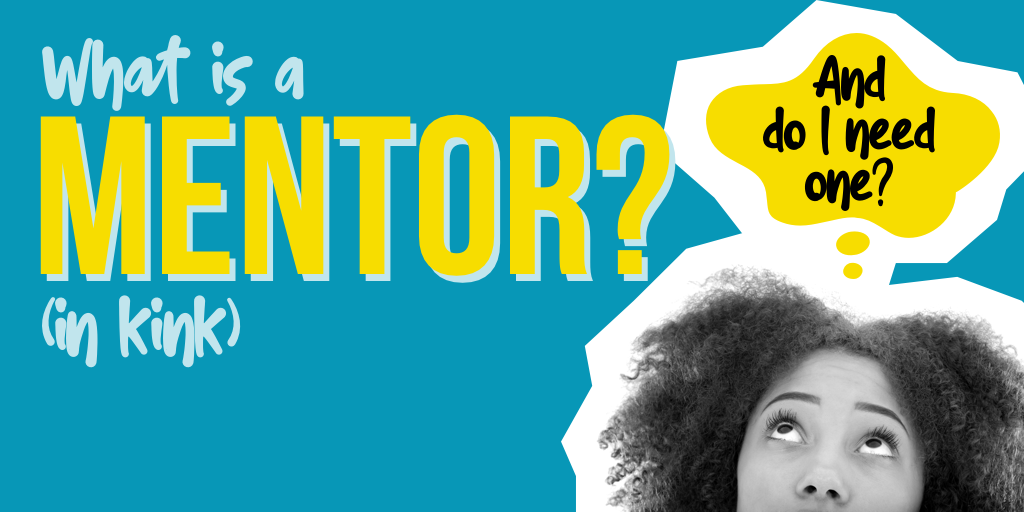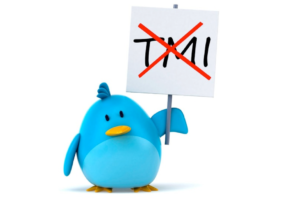Here’s a simple definition of a mentor:
Mentorship is a relationship in which a more experienced or more knowledgeable person helps to guide a less experienced or less knowledgeable person. The mentor may be older or younger than the person being mentored, but he or she must have a certain area of expertise. — Wikipedia
So, what’s a mentor in kink, then?
Well, someone who has knowledge and experience in kink guiding someone who could use some help.
Do you need a mentor?
Need is a strong term.
You likely don’t NEED a mentor.
Could you benefit from one? Probably, yes.
And while I can’t say I have any official mentors, I did learn something from all those internet seminars I attended, and that is: I can choose a mentor from any place in time and space, and learn from them—with or without their buy-in.
And I have plenty of those.
Meaning, this writing, and myself and the amazing people who have contributed are, in some small way, offering mentorship to you through our words and expression of ideas.
So, in that sense, yes, I believe everyone benefits from learning and growing through others’ experiences and understanding.
But a more formal mentor?
Well, maybe.
I think a mentor/protégé relationship is deeply personal and best when developed more or less organically in most cases.
You find someone you really connect with and respect, and you spend time with them, developing a common outlook, then it becomes more. On either side.
What about mentors of other roles or genders?
I bring this up because it’s a bone of contention in the community.
In other words, can a dominant mentor a submissive, or a submissive a dominant? Or can they only mentor within their own roles?
Can a woman mentor a man or a trans man? Can a man mentor a trans woman or an NB?
Depends on who you ask.
In my role as a mentor in the lifestyle, I’ve mentored dominants and submissives.
I could be wrong for doing so, but I don’t think so.
I think in all of my experience and research and interest in this life, I have a perspective that can help anyone on either side of the slash, and the contacts to know people I can refer them to for more specific information. However, there are those who will say what I do is dangerous.
Here are a few reasons:
Grooming
It’s too easy to take advantage of a position of power to make someone into the ideation of a role I want, rather than a better version of themselves, whatever that might look like.
This is fair.
I’ve seen it happen.
Where a mentor uses their position to create a “perfect sub” or “build-a-better-dominant” for their own purposes.
Isolation
In some cases, a mentor can use their power to isolate others from the community, to make sure that only their ideas and beliefs get through.
This is usually hand-in-hand with grooming, but not always.
In some cases, it’s just about ego and some sort of Won Twoo Way-ism. Creating sweet little clones of their idealized lifestylers.
However, I’ve seen this happen in dom/dom and sub/sub mentoring as well.
Wrong Experience
Dominants don’t know the submissive experience and vice versa.
Well, aside from being untrue in many cases (because many people switch roles in their lives, and there ARE switches who inhabit both at all times), I believe that NO ONE can give an experience to another in whole cloth, anyway.
I don’t know another dominant’s experiences and life story.
I mentor towards the person, rather than the role. If someone (dominant or submissive) is struggling to accept a part of themselves, I can relate to that, and give my feedback and suggestions on how to move forward.
It doesn’t matter to me if that is part of their submission or otherwise.
The Challenge as A Mentor
All of these things boil down to the single challenge of being a mentor.
To recognize that our protégé is a discrete individual, with their own needs, desires, skillsets and resources, and no matter how strongly we feel about something, there is no WON TWOO WAY to do anything (except maybe in trying to create replica table science experiments).
In mentoring dominants, I am not trying to create other Nookies. I’m looking to lift another dominant in the way they need to be lifted.
I’m not trying to create an army of “Stepford submissives,” but to help each submissive find their unique service within themselves.
The Challenge as A Protégé
The key as a protégé is the opposite. To not put your mentor on a pedestal. To not try to form your life and opinion in lock step with theirs.
To question and challenge and do your own research.
Types of Mentors
There are many types of mentors. Official and unofficial.
For example, there are those who you just always feel you can turn to to bounce ideas off of, and help you find the right direction.
There are those who take you under their wing and coach you in life/lifestyle.
There are mentors who will teach you about a particular skill, starting with the basics, assessing your abilities on a set of standards and giving you methods of improving and growing.
You may want more than one mentor.
You may not want any.
Totally up to you.
What are your thoughts?
Have you had a mentor? Many? Official? Unofficial?
What are upsides and drawbacks? Would you take another mentor, given the opportunity?
—
This was originally written for my book, “FLR, FemDom, & Women in Charge.”
(In the PLUS Member library.)








